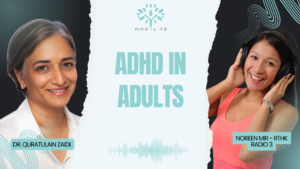In this article we identify common symptoms of grief to watch out for after we experience loss.
Grief refers to our cognitive, emotional, physical, behavioural, and social reactions to loss. It is helpful to stay aware of our symptoms so that we can prioritise recovery and process our grief in a healthy way.
Here are some of the common grief symptoms experienced after loss.
Cognitive
- Difficulties concentrating
- Difficulties remembering things
- Difficulties making decisions
- Brain fog
- Rumination on loss
- Persistent negative thoughts
- Sense of hopelessness
- Questioning (e.g. what-if, why did this happen)
- Preoccupation with mortality, including own mortality
Emotional
- Pain and Sadness
- Anxiety
- Numbness and Emptiness
- Confusion
- Shock
- Anger
- Shame
- Guilt
- Relief
- Blame toward self and others
- Despair
Physical
- Nausea and Digestive Issues
- Aches and Pains
- Skin Issues
- Cardiovascular Issues (e.g. rapid heartbeat)
- Breathing difficulties
- Fatigue and Weakness
- Worsening of chronic conditions
Behavioural
- Procrastination
- Avoidance
- Urge for drastic change
- Impulsivity
- Lack of motivation or energy
- High energy phases
- Denial
- Changes in sleeping or eating patterns
Social
- Withdrawal from others
- Enhanced conflict
- Mistrust
- Changes in own identity & roles
Article written by Dr Esslin Terrighena
While all these are common and normal responses to grief, they may feel overwhelming or become problematic if you find yourself stuck in them for a prolonged period of time. If you have been experiencing symptoms of grief, find out how grief therapy can help by booking a consultation on (852) 2521 4668 or [email protected].







